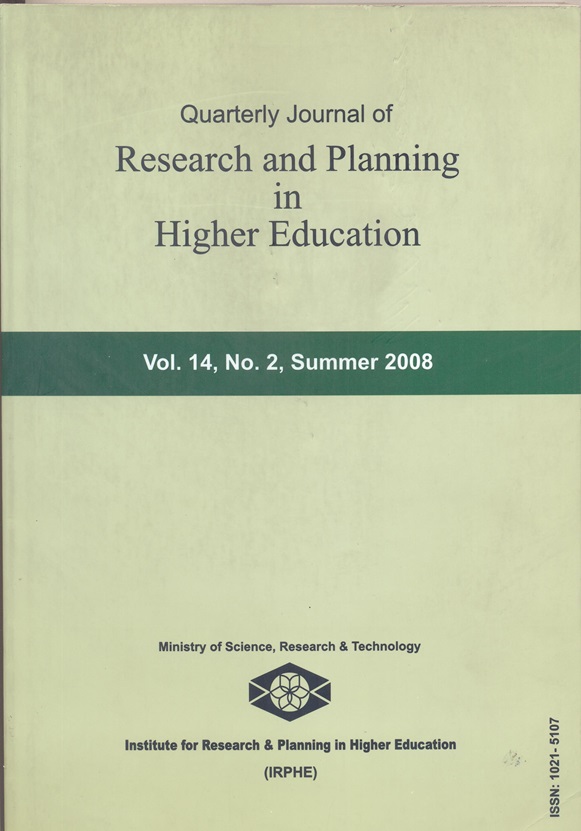Returns to Higher Education: An Evaluation of the Effects of Self-Selection Problem & Treatment
Author
Assistant Professor, Department of Educational Planning & Administration Faculty of Psychology & Education Tehran University, Tehran
Abstract
This articles aims at evaluating the effects of self-selection problem and treatment on returns to higher education caused by individuals' decision to attend colleges or universities. We apply conditional earnings functions to tackle the problem of self-selection bias. Using data from the Tehran province survey of socio-economic characteristics 1380 and the U.S. National Longitudinal Survey of Youth 1976 and 1994, we found that (1) education is an investment with high returns for the employees of Tehran province, (2) the returns to higher education is substantially more than those to the general education, (3) taking into account the problem of self-selection increases the returns to education estimates, and (3) the findings of Tehran province sample are similar to those of the U.S. samples. Therefore, the pattern of the findings are the same and also consistent with theoretical considerations stating that the conventional estimates which do not deal with the problem of self-selection and treatment effects produce biased and inconsistent results. Policies based on such estimates then can be misleading and severely deteriorate the allocation of resources in the society
Keywords
 Quarterly Journal of Research and Planning in Higher Education
Quarterly Journal of Research and Planning in Higher Education
